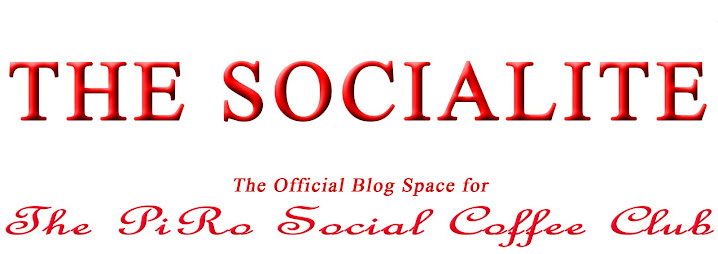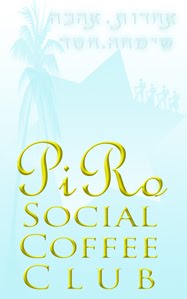Secular New Year, Emulating the Ways of the Nations, and Hypocrisy
On the Socialite blog, a reader took umbrage with a comment I made concerning the Biblical proscription against gratuitously emulating the customs and practices of the Gentiles. Whether it has any bearing on the observance of the secular new year is a subject of debate among the later poskim. What intrigued (or incensed) this reader was his (alleged) assumption that many Charedi Jews and Chasidim are in violation of this prohibition (Leviticus18:3) inasmuch as they wear attire that was once worn by the Polish nobility centuries ago. I'm not going to address this issue at this time, but I'd like to tackle the implication or charge of hypocrisy by the Charedi world that this reader was advancing and see where that takes us.
If one were taking a survey, looking to add an 11th Commandment (not to be taken seriously as one cannot add to the Torah), I would vote for “Thou shalt not be a hypocrite.” Many students of the Talmud are imbued with that message early on, as they study the teachings of the Talmudic sages that are replete with examples of “Practicing what one preaches.” With that understanding, it comes is somewhat disheartening to read a different account in the Greek Scriptures where the allegation of hypocrisy is heaped upon the rabbinical Pharisees:
“The scribes and the Pharisees have sat in the chair of Moses. All things therefore whatsoever they shall say to you, observe and do: but according to their works do ye not; for they say and do not. For they bind heavy and insupportable burdens, and lay them on men's shoulders; but with a finger of their own they will not move them… And they seek salutations in the market place, and to be called by men, Rabbi" (Matt., 23:1-8).
Ouch, that hurts! Is that what learning Torah and training rabbinic leaders produced in the 1st Century? Josephus in Antiquities identifies the Pharisees as becoming practically synonymous with Judaism. A study of Talmudic history, he says, reveals a “certain moral dignity and greatness, a marked tenacity of purpose at the service of high, patriotic, and religious ideals.” As contrasted with the Sadducess, the Pharisees represented the democratic tendency; contrasted with the corrupted priesthood, they stood for both the democratic and the spiritualizing movement among the people.
So concerned with being consistent and taking responsibility for their teachings, that in Shabbat 54b, the Talmud cites the case of Rabbi Elazar ben Azaria, “whose cow” would go out on Shabbat with a forbidden rein between her horns. The rabbis explain that the cow did not really belong to R’ Elazar ben Azaria, but since R’ Elazar did not reprove his neighbor who was the actual owner, it was reckoned as if he had committed the violation.
So let’s examine an episode in the life of one of these scholars and evaluate if he fits the scathing indictment found in the Gospel of Matthew mentioned above.
The Talmud tells that Rabbi Yannai, a Pharisee, had a tree that spread into a public place. A case came before him where a person had a tree that leaned over into a public place and passersby were injured by the thorns.
Rabbi Yannai told the litigants, "Go home today. Come back tomorrow. I will tell you what the law is."
Meanwhile, Rabbi Yannai sent his servants to cut down his tree. The next day, when Rabbi Yannai was sitting to judge the case, he said, "The law is that you must cut down the tree because it is a public impediment."
But, Your Honor, you also have a tree that leans into the public street. Your tree is also a public impediment."
Go, take a look," replied Rabbi Yannai, "if I have cut down my tree. You must also cut down your tree. If I haven’t you can leave yours, as well"
The Talmud asks, "Why did Rabbi Yannai not cut down his tree earlier?"
Why did he wait until a case actually came before him?"
Rabbi Yannai assumed that passers-by enjoyed the shade of his tree. However, when a case came before him, he realized that a tree whose branches reach out into the public street cause grief to passersby. He reasoned that people were only quiet out of respect for him. Therefore he sent for it to be cut down.
In any case, Rabbi Yannai did not tell others to cut down their trees until he had cut down his own. Here is a case where we find a Talmudic sage, a Pharisee, not only “talking the talk, but walking the walk.” By no means were rabbi Yannai’s actions an exception. As a learned person of Scripture, he followed sound advice: "Remove your own straw and then remove others' straw." (Zephaniah 2:1) If your friend has a little piece of straw in his eyes and you also have straw in your eyes, remove the straw from your own eye and then remove the straw from the other person's eye. Put simply, “Don’t try to correct others until you’ve corrected yourself!” (Talmud Baba Batra 60a)
To my friendly blog reader, DrM, we should consider Rabbi Yannai's sound advice, before pre-judging our coreligionists who are grappling with their own issues on the battlefield of living and observing a Torah life in the lands of our exile. Shabbat Shalom!












No comments:
Post a Comment